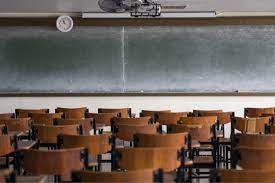Zimbabwe has been ranked as one of the top 10 African countries with the highest education levels in 2024, according to a report by Data Panda, which measures education levels based on literacy rates and years of schooling.
The southern African country secured the fourth spot while Seychelles ranked number one, followed by South Africa while Mauritius came third.
Coming fifth after Zimbabwe is Botswana, followed by Gabon at six, seven is Sao Tome and Principe.
Tunisia is ranked number eight while Algeria and Egypt come nine and 10 respectively.
Reached for comment, Director of Communications and Advocacy in the Ministry of Primary and Secondary Education, Taungana Ndoro said Zimbabwe’s high ranking to strategic interventions by the government.
“The curriculum is moving away from colonial education to a heritage based curriculum which uses an ethos of hunhu/ ubuntu (humanity) that reminds people of their heritage and who they are,” he said in an interview with CITE.
“We appreciate what the government of Zimbabwe is doing, in particular, His Excellency, the president of Zimbabwe Dr Emmerson Mnangagwa who has made sure that the Ministry of Primary and Secondary Education puts in strategies to maintain a high level of education and literacy within the country of Zimbabwe.”
Ndoro said the education ministry was proud to see Zimbabwe ranked “very highly in Africa and also in the world.”
“This is also evident throughout the world, where you see Zimbabweans are in high paying and top jobs whether throughout the world whether it’s in South Africa, England Canada, US or Australia or any other country,” said the education ministry spokesperson.
“Zimbabweans are in top paying jobs because of the quality of the education that they have. This is due to the strategies that the ministry has put in place under the guidance of the president.”
In the 2025 National Budget, Minister of Finance, Economic Development and Investment Promotion, Professor Mthuli Ncube allocated ZiG 46.6 billion to the Ministry of Primary and Secondary Education, which was the highest allocation among the government ministries.
In total, all the ministries were allocated ZiG 276 billion.
The education sector, which comprises of the Ministries of Primary and Secondary Education and Higher and Tertiary Education, Innovation, Science and Technology has a combined budget of ZiG 56.96 billion, which constitutes about 23.6 percent which is above the Dakar Declaration of 20 percent and the 15 to 20 percent of total public expenditure to education set by the Word Education Forum in 2015
Despite these achievements, critics argue that focusing solely on financial allocations overlooks the importance of non-monetary inputs.
A 2017 World Bank study stated human resources, classrooms, infrastructure, and teacher-pupil ratios are critical for assessing the adequacy of education budgets.
A teacher in Bulawayo, who transitioned from public to private education, highlighted persistent challenges in rural areas.
“As much as Zimbabwe has received this recognition, more needs to be done. Children in rural areas face limited schools – where they walk long distances, inadequate infrastructure, shortage of qualified teachers, limited resources such as textbooks, stationery and technology,” said the local teacher.
“There is also poverty and hunger as some children go to school hungry. This has been worse during this drought and we are seeing cultural and language barriers where non-local language speaking teachers are teaching children, which in itself becomes a barrier to education.”
According to Business Insider, education in Africa is a critical component of sustainable development, acting as a potent catalyst for economic growth, social improvement, and individual empowerment.
“For African nations, having a high education index, characterised by high literacy rates and lengthy years of schooling, is critical to tackling developmental issues the continent is currently faced with,” Business Insider reported.
“A high education index correlates directly with economic prosperity. Literate and educated populations are more prepared to enter the workforce, innovate, and adapt to changing sectors.
African countries may create a competent labour force capable of raising productivity and attracting both local and foreign investment by increasing literacy rates and length of education.”
Top 10 African countries with the highest education levels 2024
| Rank | Country | Global education index | Global rank | Average IQ index |
| 1. | Seychelles | 0.681 | 70th | 78.76 |
| 2. | South Africa | 0.627 | 86th | 68.87 |
| 3. | Mauritius | 0.601 | 96th | 86.56 |
| 4. | Zimbabwe | 0.535 | 111th | 74.01 |
| 5. | Botswana | 0.526 | 112th | 69.45 |
| 6. | Gabon | 0.517 | 114th | 62.97 |
| 7. | Sao Tome and Principe | 0.470 | 115th | 65.22 |
| 8. | Tunisia | 0.469 | 116th | 79.22 |
| 9. | Algeria | 0.451 | 118th | 76 |
| 10. | Egypt | 0.443 | 120th | 76.32 |

